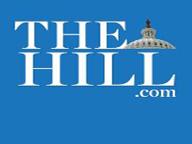School News
—
A new report published by the Center for Business and Human Rights examining how social media companies have outsourced content moderation to third-party vendors is highlighted; Center Deputy Director Paul Barrett discusses key takeaways from the research
—

Excerpt from CNBC -- "A report published on Monday by New York University’s Stern Center for Business and Human Rights called on Facebook, YouTube, and Twitter to stop outsourcing content moderation. 'The widespread practice of relying on third-party vendors for content review amounts to an outsourcing of responsibility for the safety of major social media platforms and their billions of users,' said Paul Barrett, deputy director of the center and author of the report."
School News
—

Excerpt from CNBC -- "A report published on Monday by New York University’s Stern Center for Business and Human Rights called on Facebook, YouTube, and Twitter to stop outsourcing content moderation. 'The widespread practice of relying on third-party vendors for content review amounts to an outsourcing of responsibility for the safety of major social media platforms and their billions of users,' said Paul Barrett, deputy director of the center and author of the report."





















